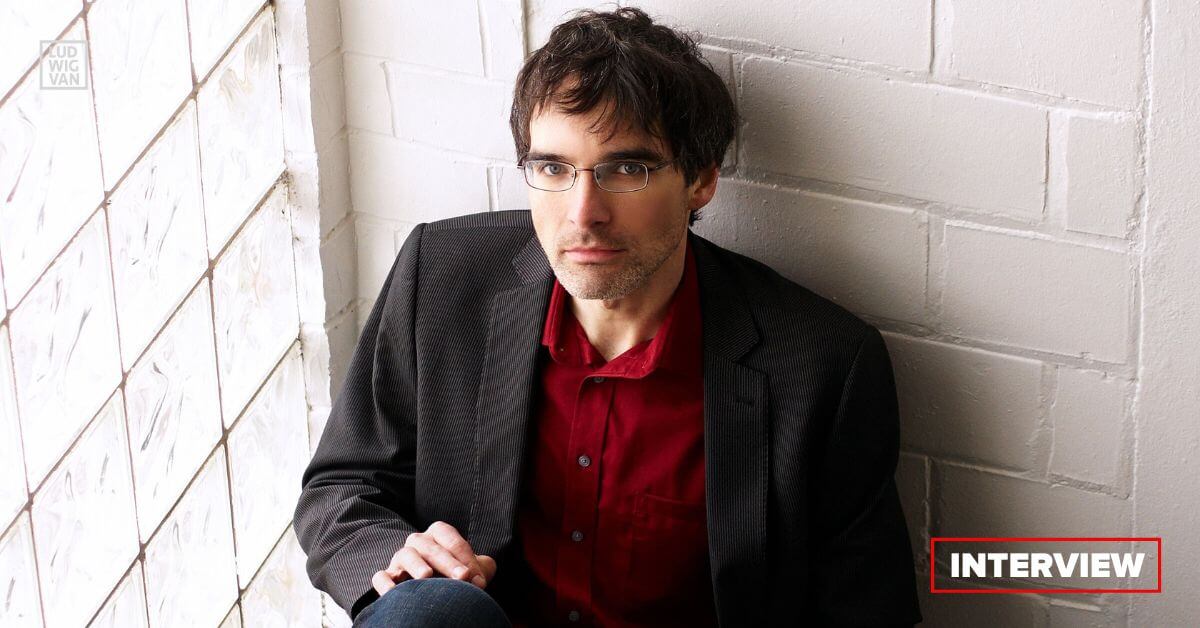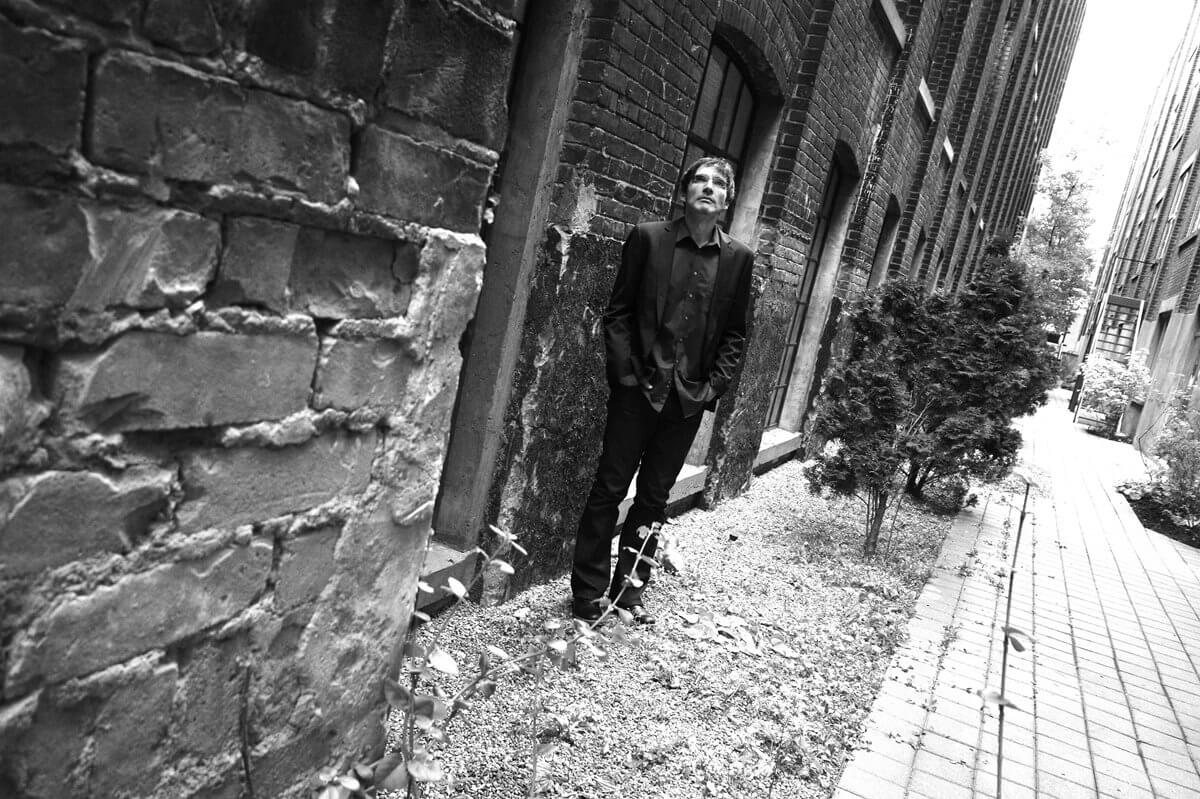
With four albums out in one year, you could say that Toronto composer Frank Horvat’s output is prolific. The latest, titled FRACTURES, drops on November 17. As improbable as it sounds, the beautiful strains of music were inspired by the environmental degradation of fracking.
Frank’s work was also recently performed by Sinfonia Toronto in concert, and while the compositions released this year all deal with the environment, they take different approaches to the music. We spoke with him about his new work, and composing classical music for the 21st century.
From FRACTURES, available November 17, featuring soprano Meredith Hall and pianist Brahm Goldhamer:
FRACTURES: Environmentalism in music
“FRACTURES is interesting, because […] I didn’t come up with the idea to compose songs about fracking in particular.” While attending a forum on Canadian new music in Ottawa about a decade ago, Frank gave a talk about compositions with the theme of environmentalism.
“A quite well known soprano who attended this came up to me after, and said, hey, what about fracking?” he recalls. “I don’t think I knew what fracking was!”
After some research into the practice, he found something that piqued his interest artistically. “I found this amazing anthology of poetry and texts,” he says. The anthology was titled FRACTURE, and it contained essay, poems and stories by North American writers about the practice of hydraulic fracking. He chose works by American and Canadian poets, including: Kathleen Burke, Michelle Donahue, Alison Hawthorne Deming, Lilace Mellin Guignard, Wayne Mennecke, Rachel Morgan, Mary Heather Noble, Christine Pennylegion, Michelle Regalado Deatrick, Stephanie Schultz, Mark Trechock, and Susan Truxell Sauter.
That happened a few years ago, and he gradually began to compose. “I started writing a few songs, and approached Meredith,” he says.
In the interim, he’s been involved in several other projects. “All my creative music projects are overlapping,” he says. “When FRACTURES comes out alone, that’ll be the fourth album of my compositions this year.”

All of them have an environmental theme in common, but it’s not his only inspiration. Mental health, for example, has been one of his recurring themes, and collaborations have also introduced others. It’s about finding projects that speak to him, and that keep his work vital and relevant to today’s world.
“I think the big thing for me and my creative process is to first and foremost be true to myself,” he says. The theme has to resonate with him first, and then he assembles like-minded collaborators. “We work really hard to find the audience,” he says. “That being said, my personal feeling about composing is that often, it has to engage with me, it has to stimulate me.”
For him, that means an awareness of the environment. “I would have to be living in a cave to be oblivious to what’s happening in this world.” He acknowledges that it’s not everyone’s way of creating. “The way I tick is, everything in my life is interconnected,” he says. If something he comes across moves him emotionally, there’s a good chance it will lead to a piece of music. “Because I’m a citizen of this planet, and I’m concerned about my future on this planet, it’s a natural extension of my belief system.”
Of course, it’s also about the music, which he believes should be equally appealing to someone who doesn’t know about the thematic inspiration. “I appreciate that because I do that, it often engages with people, because they might like the sound of the music, and not know anything about the ideas behind it,” he says. “I want it to be strong that way (I’m still a composer).” If the music sparks an interest in the ideas, then it’s another level of appreciation.
He remarks that he’s also heard from people who’ve attended his concerts because of their environmental focus, knowing nothing about his music. “It does open up our specific art form to other people who might not ordinarily be interested,” he observes.
It’s also another way of keeping the music relevant, and taking it away from an elitist past that still generates negative reactions.
Classical Music in Modern Times
“I think the way in which we present the music these days is just as important is just as important as what we are presenting,” he says. He likens it to Marshall McLuhan’s oft-quoted axiom, the medium is the message.
“It’s not a shallow thing like orchestras wearing jeans,” he says. It’s about rethinking classical music presentation, including the venues, the costs, and the use of technology. What do modern audiences expect and want?
“I always felt like (classical music) was in competition with pop music,” he says. He points out, however, that so much of today’s pop music is just as daring artistically.
“I listen to everything,” he says. “My whole life is about putting new music out there.”
An Auditory Survey of the Last Days of the Holocene: Causes, 1.1 Negative Energy · SHHH!! Ensemble · Frank Horvat ℗ October 2023 Leaf Music ULC:
The Importance of New Music
“I think a lot of classical music organizations are doing too much old music,” he says flatly. “How can you, in the end, be truly relevant to a society, when the vast huge percentage of content that you are sharing was composed [hundreds of] years ago? It doesn’t make sense,” he says.
The unpopularity of new classical music is one of the main arguments used against its regular inclusion into programming. Often, he says, a work is commissioned, receives its premiere, and then promptly dies of inattention. However, it’s the lack of support that works against any new creation.
“Can you imagine if the Hollywood film industry (did something similar):?” he wonders. What if the movie industry kept screening Casablanca and Gone With The Wind into eternity? “They know from a business model that they need to put out new content.”
Naturally, it would benefit composers like him if new music was given even a bigger place in the classical music firmament. He points out, though, that everyone would benefit from a steadier influx of fresh blood.
“Maybe musicians who have played Beethoven’s 5th a million times… maybe they’ll be intrigued,” he says.
“I’m not saying classical music organizations shouldn’t play classical music” he explains. “We have to listen to audiences and see what they like.” But, it can’t always be the same old, same old. “We have so many superstars in this form of music,” he points out.
With the undeniably bad news that’s coming from the established classical music scene, it’s clear the old ways of drumming up business and ticket sales are not working. There is a younger, more fluid DIY scene out there, where all those young people who are trained in classical techniques are playing Beethoven with Beyoncé, and making no distinctions between them. Established institutions need to pay more attention to that thriving indie world, and tapping into its audience appeal.
“It’s plain and simple. They are not selling tickets,” he says. He points out that, while the pandemic brought many situations to a head, the problems with large and established classical music institutions had been brewing for some time. “It just pushed it over the cliff.”
He quotes Phoenix Rising, the last song on Fractured, where the lyrics from a poem by Kathleen Burke begin with the line, “The world I knew, burned down…”
“This is the world we live in,” he adds. “I hope that in 20, 30 years, we stop calling people like me ‘composers of classical music’ — I just want to be a composer.”
What does it mean to be a 21st century composer? “I’m just trying to do my own thing rather than regurgitate established styles,” he says.
Another of the usual arguments against programming new music vs. the established repertoire of Western classical music runs something along the lines of: If we don’t programme Beethoven, they won’t come.
“For me, that’s easy to counter,” Frank says. “What are you replacing it with? How are you promoting it?” He likens it again to the movie industry, “You don’t see a film without a trailer or review. There’s a lot we can learn from those tricks without selling our souls.”
He notes also that our views on classical music, and even beyond that, the way we tend to silo off different genres and different art forms in Western culture, stems from our educational system. It no longer serves the purposes of a newer generation that is getting their information from the broader purview of the World Wide Web, where no such distinctions exist.
“How are we resonating with this younger generation?” he wonders. “We have to stop calling concerts, concerts. We have to call it an experience.” How can it be made into an immersive experience, the kind that 21st century audiences have come to expect? That’s where the future of music presentation lies, he believes.
FRACTURES, Frank Horvat’s 4th environmentally-themed album of 2023, will be available on November 17, on the heels of his An Auditory Survey of the Last Days of the Holocene performed by SHHH!! Ensemble, released on Leaf Music on October 20, 2023. Find out more [HERE].
Are you looking to promote an event? Have a news tip? Need to know the best events happening this weekend? Send us a note.
#LUDWIGVAN
Get the daily arts news straight to your inbox.
Sign up for the Ludwig Van Toronto e-Blast! — local classical music and opera news straight to your inbox HERE.
- PREVIEW | SUMMER OPERA LYRIC THEATRE Presents Handel’s Xerxes, Mozart’s Idomeneo & Puccini’a La Boheme July 26 To August 4 - July 26, 2024
- PREVIEW | YENSA Festival V.2 Offers Black Flames Performances & Other Ways To Celebrate Black Women In Dance - July 25, 2024
- PREVIEW | Canadian Talent Conspicuous In The Met: Live In HD 2024-25 Season - July 25, 2024



